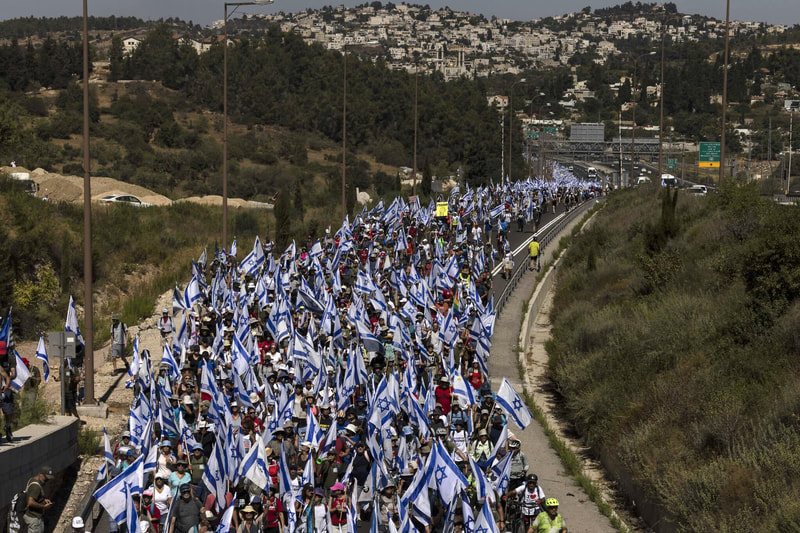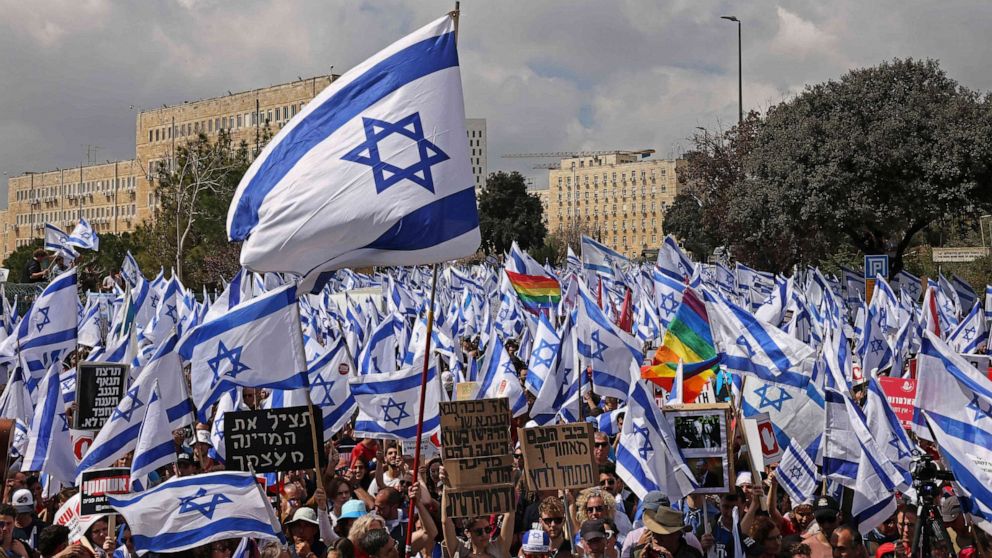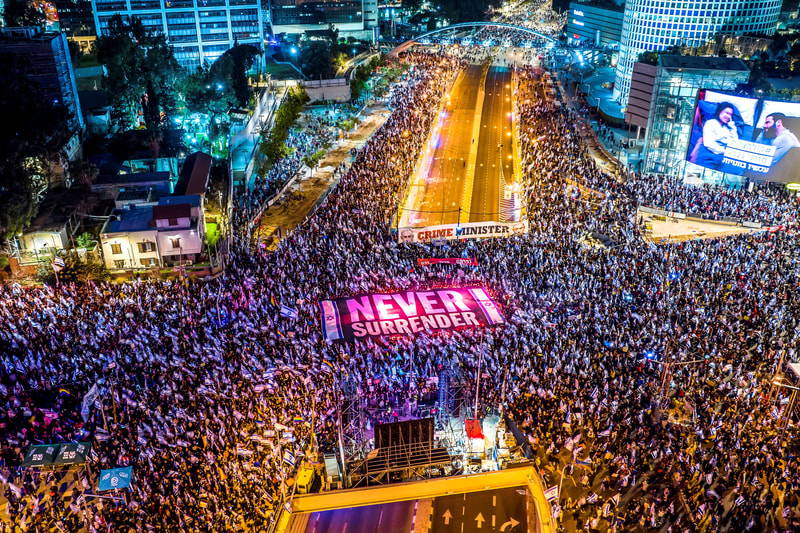MAKOM BLOG
Tisha B’Av and Me: Is This Year Different?
By Rabbi Deborah K. Bravo
Tisha B'Av 5783 / July 27, 2023 Tisha B’Av and I have always had a complex relationship. Growing up at a Reform Jewish summer camp in Wisconsin, there was always a commemoration on Tisha B’Av, reminding us of the sadness we are meant to feel as we recall the destruction of the First and Second Temples. We would walk quietly into a dark room, filled with candles, singing “By the Waters of Babylon” by Don McLean. The lyrics were as follows: “By the waters, the waters of Babylon; we sat down and wept, and wept, for you, Zion; we remember, we remember, we remember you, Zion” And… on Tisha B’Av, in this Reform Jewish summer camp, there was always a space in the library for the small group of older campers and staff members who would choose to fast, often a place where a faculty member would lead some study. And… there was sometimes a burial of used and worn sacred books in a camp-created geniza, something that seemed appropriate to do on Tisha B’Av. And… there was always a heated discussion, typically led by some of the faculty and attended by faculty and staff, about whether or not we should even be commemorating Tisha B’Av at a Reform Jewish summer camp, and why and why not. I typically fasted when I was an older camper and staff member, more because it seemed like the right thing to do, as one who was headed to rabbinic school, rather than because it was a ritual I felt deeply connected to. I could also be found often in that heated conversation, feeling torn over the basic idea as to whether or not the destruction of the Temples was a terrible thing or a natural progression in our history that allowed Jews in the Diaspora to flourish and Judaism to become what it is today. Or both. ------ 
For those who didn’t go to Jewish summer camp, and don’t come from a more traditional Jewish upbringing, you have probably never even heard of Tisha B’Av. Or perhaps you knew about that ‘time in the summer when you couldn’t get married’. So what is it?
Tisha B’Av is a day of fasting and mourning, the most important fast day next to Yom Kippur and the saddest day in our Jewish calendar. It always falls during the summertime, a time in Israel that is dry and hot. Tisha B’Av literally means the 9th day of the Hebrew month of Av – like the 4th of July. It is preceded by three weeks of mourning and sadness, similar to the way we lead up to joyous holidays, we also must enter the darkest day with a period of mourning and sadness. It is first mentioned in the Book of Zechariah, and has been observed ever since. This time period beings with the 17th day of the month of Tammuz, a day that supposedly saw many destructions as well, supposedly including the destruction of the first set of Ten Commandments by Moses. The last 9 days leading to Tisha B’Av are the most intense, and most joyous and basic rituals are set aside until after Tisha B’Av. At its core, Tisha B’Av commemorates the destruction of the First Temple by the Babylonians in 586 B.C.E. and the destruction of the Second Temple by the Romans in 70 C.E., though there is debate as to whether or not this is really the exact date of these events. However, the rabbis during the Rabbinic Era (200-500 C.E.) came to observe this day as one day of commemoration of these two great tragedies for the Jewish people. Over the years, as other tragedies occurred, they were ‘said’ to have occurred on this day, though again, there is much debate about it. These other tragedies include: the beginning of the first Crusades (11th century), expulsion of Jews from England (13th century), the expulsion of Jews from Spain (15th century) and the outbreak of World War I. The only major event in Jewish history not connected to Tisha B’Av is the Holocaust, for it was decided that it needed its own day of mourning and commemoration, and so we have Yom Hashoah, Holocaust Remembrance Day in the Spring. Over the years, my personal observance of Tisha B’Av has changed. Once I stopped spending summers at camp, I was no longer in a setting that encouraged or invited thought around this commemoration, and so logistically it was not a part of my calendar. Some years I have participated in community study; some years I have organized commemorative services. Rarely have I fasted over the past 25 years: not out of laziness but rather because I don’t feel a connection to the sadness of this day. I have always encouraged people on Yom Kippur to fast, if they so choose, with a purpose. For there to be meaning and intention in the fast, not just the ritual aspect of fasting, and for me, there has not been meaning or intention to fasting on Tisha B’Av. Quite honestly, I believe the destruction of the Temples allowed for a natural transition from centralized Judaism to Judaism that spread throughout the world. And I certainly do not pray for the establishment of a third Temple, as small groups of ultra-orthodox Jews today might do. Over the years, as tragic events have occurred on or near Tisha B’Av, I have been amazed, or intrigued by the proximity to this date that these events often seem to have, though I still do believe that this date is… just a date. And yet… this year feels a bit different. The events in Israel this week are not necessarily parallel to the destruction of the First and Second Temples. They are certainly not parallel to the Holocaust, the greatest tragedy of Jewish history. But they are tragic. The decision made by the 64 members of the Knesset, under the leadership of Netanyahu, will have a horrific impact on Israel and the world for many years to come. And I, like many in the Jewish, pro-Israel world, are in mourning this week: mourning for what should never have happened, like mourning the death of a young child, with so much potential and greatness ahead. So yes, for me, Tisha B’Av this year feels a little different. I will meditate. I will pray. And I will find ways to nourish my soul so that I can help to make a difference for Israel and the world tomorrow. And from now until Rosh Hashanah, I plan to devote time, energy and thought into this mission. In the Book of Lamentations, traditionally read on Tisha B’Av, we read: “Let us search and examine our ways and return to Adonai.” (Lamentations 3:40) I pray each of us will take this time, and use this Tisha B’Av, to find ways to connect to Adonai our God, especially as a way to make Israel a better place for the Jewish people and for all peoples. |
WELCOME to MakomNY |










